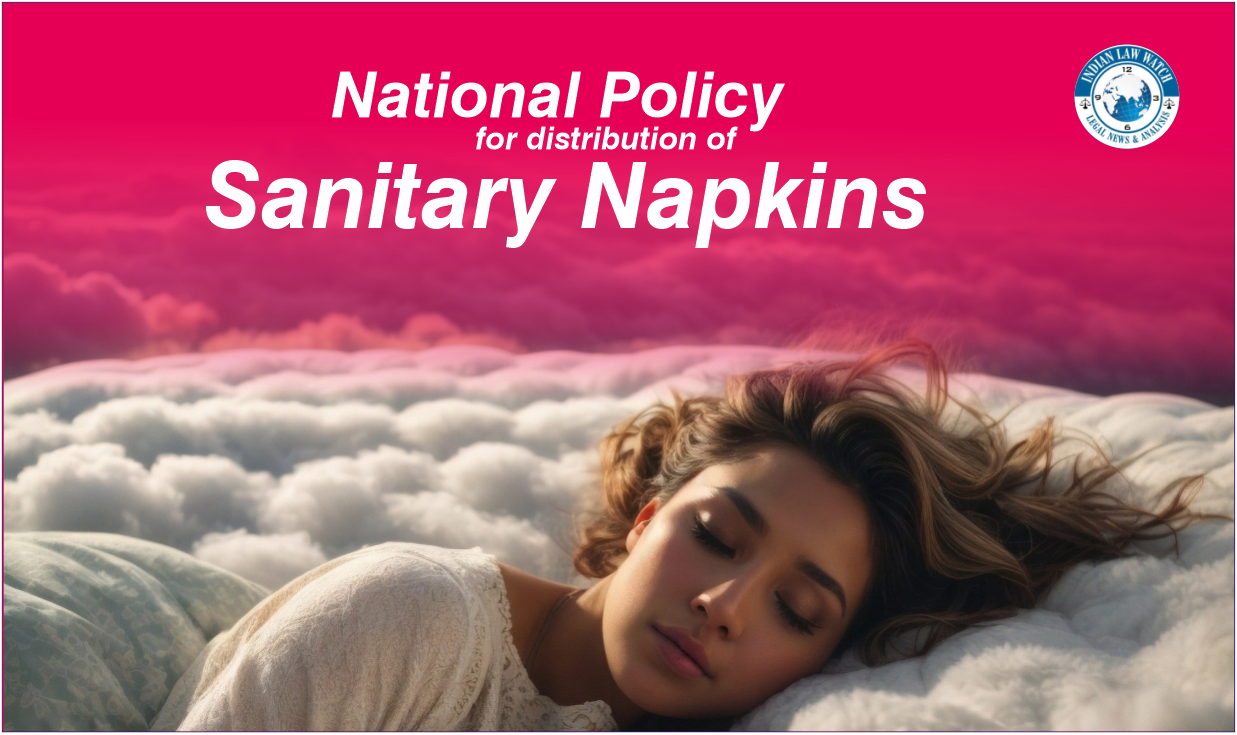

The court was hearing a plea seeking to issue directions to governments to provide free sanitary pads to girls studying in Classes 6 to 12
The Centre on Monday informed the Supreme Court that a draft national policy for the distribution of sanitary napkins for school girls has been formulated and the policy is being circulated to get opinions from stakeholders.
Appearing for the Centre, advocate Ameyavikrama Thanvi apprised the top court of this fact.

A bench headed by Chief Justice of India DY Chandrachud and also comprising justices JB Pardiwala and Manoj Misra asked the Centre to apprise them of the policy on the next date of the listing.


-
Meanwhile, the court also directed the Centre to ensure that a national model is in place to set up girls’ toilets across government schools.
-
The Centre had earlier apprised the court about its proposal to direct all states and UTs to make provisions for ensuring the availability of quality low-cost sanitary pads, and vending machines in schools.
-
Taking note of the importance of the matter, the court had earlier issued various directions including one that all states should send the Union their menstrual hygiene policies and to ensure low-cost sanitary napkins and safe disposal mechanisms.
-
The court was hearing a plea seeking to issue directions to governments to provide free sanitary pads to girls studying in Classes 6 to 12.
-
The plea has been moved by social activist Jaya Thakur through advocates Varinder Kumar Sharma and Varun Thakur.
-
The petitioner said that serious difficulty is faced by adolescent females between the ages of 11 and 18 years coming from poor backgrounds.
-
“These are adolescent females who are not well-equipped and are also not educated by their parents about menstruation and menstrual hygiene. The deprived economic status and illiteracy leads to the prevalence of unhygienic and unhealthy practices which has serious health consequences; increases obstinacy and leads to eventual dropping out from schools,” the petitioner said.
-
Henceforth, in the plea, the petitioner has sought to issue directions to provide separate girl toilets in all government-aided and residential schools and to issue directions to provide one cleaner in all government-aided and residential schools to clean the toilets.
-
The plea also sought to issue a writ order or directions in the nature of mandamus to the Respondents to provide a three-stage awareness programme i.e. Firstly, the spreading of awareness about menstrual health and unboxing the taboos that surround it; Secondly, providing adequate sanitation facilities and subsidised or free sanitary products to women and young students, especially in disadvantaged areas; thirdly, to ensure an efficient and sanitary manner of menstrual waste disposal.
-
In India, the right to health derives from the Directive Principles of State Policy and is an established right under Article 21 of the Constitution of India which guarantees the right to life and dignity, the petition said.
-
The ability to manage menstruation in a hygienic manner is fundamental to the dignity and well-being of women, especially in a democratic society. It constitutes an integral component of basic hygiene, sanitation, and reproductive health services.
-
Inadequate menstrual hygiene management compromises girls’ education, health, and well-being.
-
Therefore, efforts to address these inadequacies must involve the provision of sanitation and hygiene facilities along with creating an enabling social and physical environment that addresses all menstruation-related needs, the petition added.
Source: Business Standard





